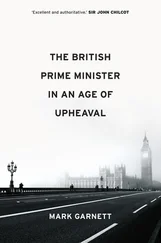Britain’s wartime leader was oddly relaxed about his own personal safety, despite more than a dozen serious attempts on his life. Hitler certainly ordered his multiple secret services to target Churchill, the oddest such operation being a plot to attack Allied leaders at the Tehran Conference in 1943 using a team of Nazi agents transported by camel.38 Much of Churchill’s remarkable ability to survive the attempts on his life must be attributed to good fortune and his ever-vigilant bodyguard, Detective Inspector Walter Thompson. Occasionally Churchill insisted on carrying his own revolver, but for the most part brazen and carefree with only a single bodyguard, he travelled over 200,000 miles across Europe, America and the Middle East in the course of the war. No British prime minister will ever do that again, so in many ways Churchill stands at the turning point of security and intelligence in Downing Street, representing both the first of a new wave of premiers who exploited intelligence properly, but also the last of a dying breed.
Twenty prime ministers have led Britain since 1909. From Herbert Asquith to Theresa May and from Ramsay MacDonald to Gordon Brown, these premiers have held diverging political views, possessed wildly different leadership styles, and have confronted the full spectrum of problems, threats and crises. This book examines each prime minister in turn. It traces their personal approaches to intelligence and uses each premiership as a vehicle to explore the most pressing national security issues of the day. It reveals that despite the vagaries of personality and politics, intelligence has become increasingly central to all prime ministers. This was not always the case. Back in the first decade of the twentieth century, the secret world was alien to Asquith. Churchill and Attlee addressed this problem together, and forged a quiet revolution. Now, as a result, the prime minister presides personally over an organised intelligence community operating at the heart of Whitehall. This book traces that secret service journey from the periphery to the centre of power.
PART ONE
CREATING SECRET SERVICE
1
Herbert Asquith, David Lloyd George and Andrew Bonar Law (1908–1923)
A rumour spread next day in true war-time fashion that Lord Chetwynd had caught three German spies trying to signal the Zeppelin with lights, and had shot them out of hand.
David Lloyd George1
The British intelligence system was already immense by the dawn of the twentieth century. The entire British Empire, sprawling across more than half the globe, served as an intelligence machine – a veritable ‘empire of intelligence’.2 It depended on information of every kind to project British rule in remote places. Romanticised in the works of Rudyard Kipling, intelligence was about amateur imperial adventurers, revelling in deceit and subterfuge. Unlike today, espionage was conducted informally by local agents, eccentric travellers and scholars. Lawrence of Arabia and the legendary team of British archaeologist-spies at Carchemish, working across the Turkey–Syria border, typified the way great-power rivalry in the Middle East and Asia mixed with academic debates about how archaeology might change understandings of the Bible. Importantly, scholarly research was not merely a cover for secret service work. Intelligence was considered to be every kind of information, including that obtained by peculiar scholars who spoke many languages, collected eggs, bulbs and butterflies, and mixed ‘comfortably and innocently’ with the local population. Indeed, at the turn of the twentieth century, British officials in Mesopotamia feared an archaeologist-gap and urged the India Office to contact learned societies which could send more scholar-spies to buttress British interests.3 India itself, the vast jewel of the empire, depended on spies too. It became an extraordinary ‘empire of information’, allowing just over a thousand British civil servants to superintend close to 280 million people.4
An empire of information, in some form, existed at home too. New public health initiatives and social programmes meant the state knew much more about its people than ever before. Meanwhile Irish nationalists and bomb-throwing anarchists from the Continent had forced the Metropolitan Police to develop the world’s first ‘Special Branch’ in 1883. Inevitably perhaps, by the first decade of the twentieth century, Special Branch had broadened its net beyond Fenians and anarchists to collect intelligence on possible foreign spies, anti-colonial agitators, suffragettes, union leaders, pacifists, and even those with radical views on sex.5
Nevertheless, these developments were more about keeping authoritarian surveillance at arm’s length from the British public. Mysterious battles with Russian spies in Central Asia were reassuringly remote, while the creation of a small Special Branch of intrepid detectives to counter terrorism was seen as a low-key alternative to the sort of harsh and repressive security legislation preferred in Europe. Accordingly, intelligence remained a matter for distant vice-consuls travelling to Samarkand, or detective sergeants in Whitechapel. It rarely resonated at the centre of British government. More rarely still did a prime minister take a personal interest in espionage.
All this began to change over the next decade. Bizarrely, it was literary fashion which drove the transformation of British intelligence, thrusting it towards the heart of government for the first time. A wave of popular Edwardian ‘invasion literature’ forced Herbert Asquith, an otherwise uninterested Liberal prime minister more focused on progressive domestic reforms, to take notice of foreign espionage. Acting only under pressure, Asquith set in train a course which would fundamentally alter the landscape of British intelligence forever. The intelligence revolution may have been forged by Churchill and Attlee, but the first sparks came through the unlikely Asquith. Nonetheless, despite the expansion of espionage during the First World War and greater interest on the part of Asquith’s successor David Lloyd George, it took time and endless trouble before successive prime ministers learned to use intelligence effectively.
Fiction paved the long pathway to the creation of a modern British intelligence service. During the nineteenth century, a stream of often sensational crime novels fed a growing public fascination with detection, police work and science. This generated cultural change, gradually eroding anxieties about government surveillance. Created by writers as diverse as Edgar Allan Poe and Arthur Conan Doyle, fictional detectives gradually became heroic figures to be worshipped, rather than bogeymen associated with distasteful and un-British authoritarianism.6 Journalists, who often exchanged information with real policemen, accelerated this transformation, helping to create real-life detectives who enjoyed a similar cult status.7 William Melville, who became head of Special Branch, was one example. He famously foiled several anarchist attacks, including the ‘Jubilee plot’ against Queen Victoria in 1887 and another dastardly scheme known as the ‘Walsall plot’, in which anarchists from the West Midlands sought to manufacture a bomb. Many now believe that he created the latter plot himself for mere self-glorification.8
Over three hundred spy novels went into print between 1901 and 1914, mostly focused on the ‘German Menace’. This new fiction effectively rebranded itself as a barely concealed form of ‘true crime’ writing, supposedly based on the patriotic leaking of government secrets. In 1903, Erskine Childers published The Riddle of the Sands , which narrated the summer sailing adventures of two young British men along the East Frisian coast who stumble upon a German plot to invade England with a flotilla of barges. Childers claimed to be offering the British people nothing less than a warning of what was to come, and Rudyard Kipling urged the public to support him in taking a firm stand against the ‘shameless Hun’.9 The story was improbable – the German admiralty had long written off the possibility of an invasion from East Frisia – but the hapless Royal Navy was forced to investigate the claims regardless.10
Читать дальше












